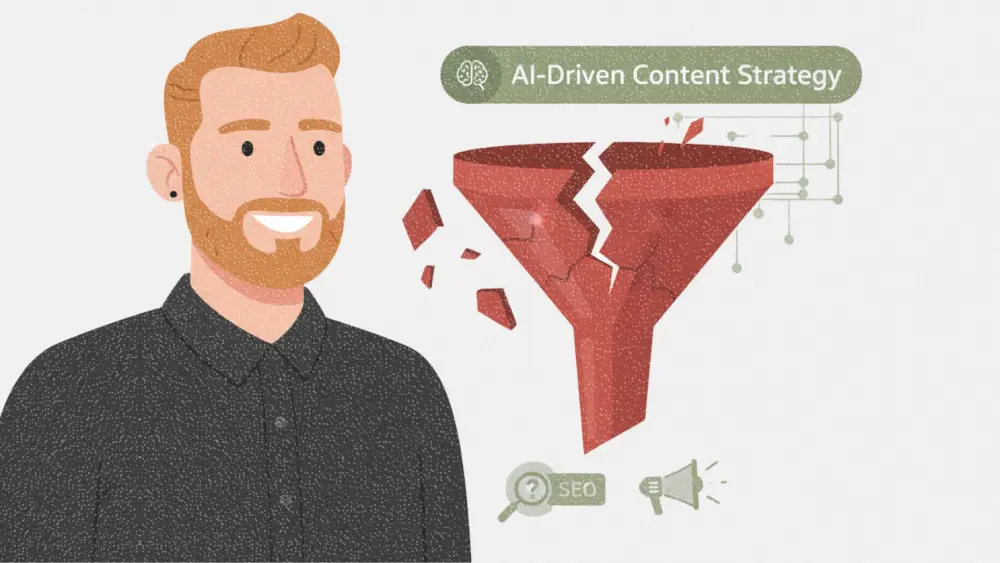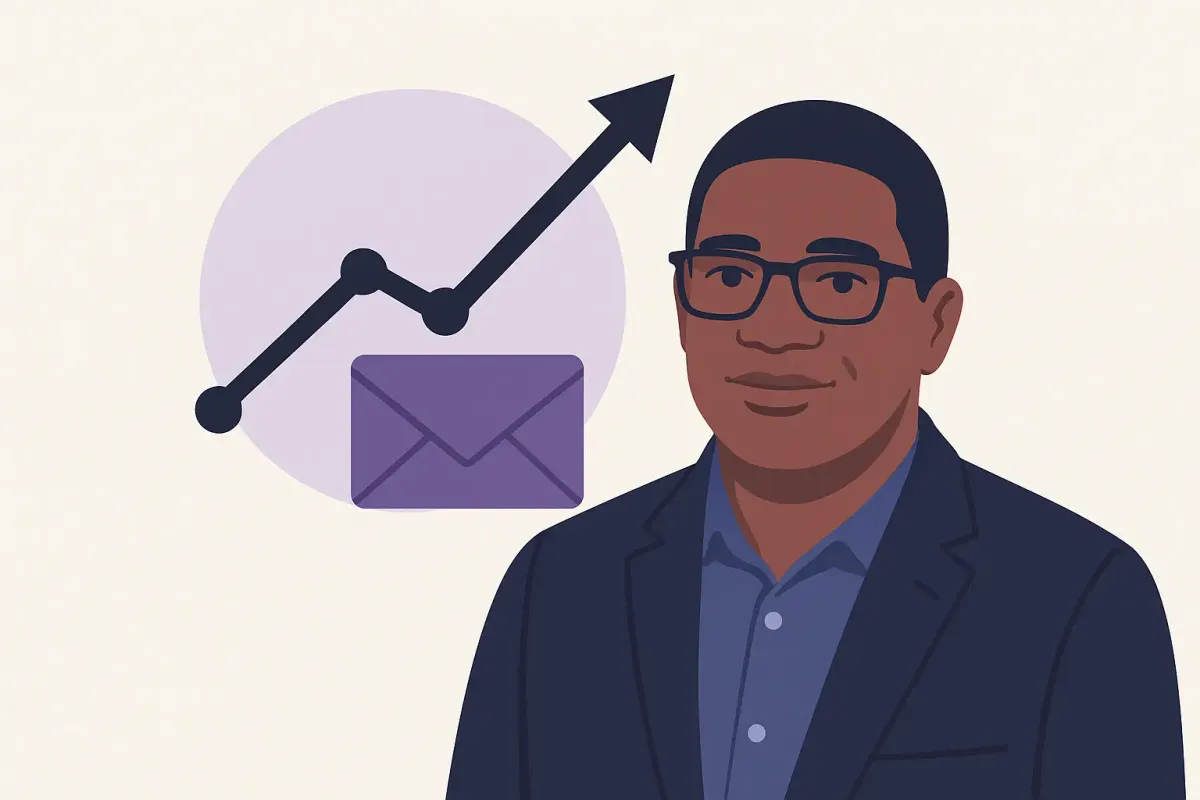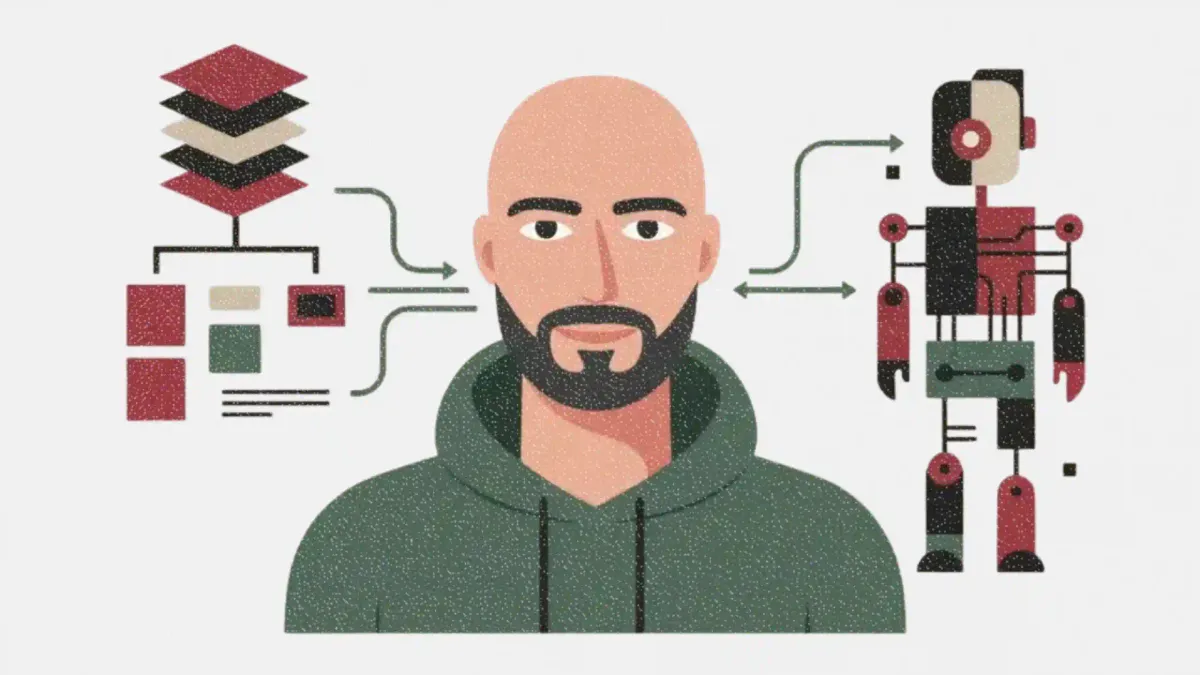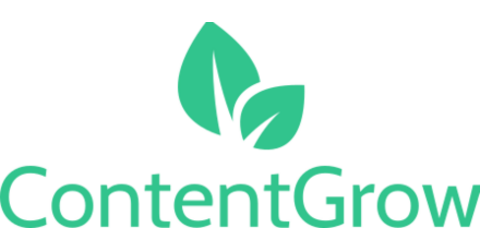Ulf Lonegren: Why traditional inbound marketing is dead
Roketto's Ulf Lonegren reveals how his agency pivoted from traditional inbound to AI-driven strategies—and why "What is CRM?" content is dead.

Traditional inbound marketing playbooks are breaking. The traffic-nurture-convert funnel that worked for a decade? It's been gutted by AI search engines that answer questions without sending users anywhere. Ulf Lonegren, Co-Founder and Partner at Roketto, calls it bluntly: "The whole playbook we used for top-funnel content is basically dead now."
Roketto is a Kelowna, BC-based inbound marketing and web design agency specializing in SaaS, ecommerce, and B2B companies. Since co-founding the agency in 2009, Ulf has built Roketto around a simple philosophy: revenue over reports. The agency focuses on conversion-driven strategies that prioritize measurable business outcomes rather than vanity metrics. With over 15 years navigating algorithm shifts and platform changes, Ulf says the AI disruption has required the most fundamental rethinking of strategy yet.
In this interview, Ulf shares how Roketto completely rebuilt its content strategy when AI search killed traditional top-funnel traffic, the AI automation workflows now running client operations 24/7, and why agencies trying to replace human expertise with AI are missing the entire point.
Short on time?
- From informational content to buying-intent keywords
- AI adoption without losing strategic thinking
- AI automation workflows replacing manual processes
- Why agencies struggling with AI are missing the point
From informational content to buying-intent keywords
Articles optimized for queries like "What is CRM?" used to drive thousands of visitors monthly. The strategy was simple: attract top-funnel traffic, nurture visitors through the buyer's journey, convert them into leads. But when ChatGPT and Google's AI Overviews started answering these questions directly in search results, that playbook collapsed.
"Why would anyone click through to read that when ChatGPT or Google just gives them the answer right there?" Ulf asks.
Traffic began noticeably declining across many accounts. What used to be reliable lead generation suddenly became a vanity metric—lots of eyeballs, zero conversations.
Roketto's pivot was straightforward: shift priority from informational queries to buying-intent keywords. They developed what they call HyperContent—targeting buyers who already know what they need and are actively comparing options. Instead of "What is marketing automation?" they now focus on "HubSpot vs. Marketo for enterprise teams" or "Best CRM for SaaS startups under 50 employees."
"We're focusing way more on comparison articles, solution-specific guides, and content for people who already know what they need and are trying to figure out which option to pick," Ulf explains. "Sure, the traffic numbers look smaller, but the quality is so much better. Our clients are getting leads that are actually ready to have a conversation instead of just tire-kickers."
A comparison guide that attracts 500 monthly visitors converting at 8% delivers more value than an informational post with 5,000 visitors converting at 0.2%. A growing priority Ulf calls "AI Citation Strategy" focuses on getting client brands mentioned in AI-generated answers when prospects ask tools like ChatGPT about specific solutions.
AI adoption without losing strategic thinking
With the content strategy rebuilt around buying intent, Roketto needed new production methods. The agency's HyperContent service now offers three tiers: fully human-written content, AI-assisted with human editing, and a done-with-you model. The middle option—AI drafts refined by strategists—has become the most popular.
"We use ChatGPT a lot for initial drafts and brainstorming, but then our team goes in and fixes everything, adds the strategic thinking, and makes sure it actually sounds like the client's brand," Ulf says.
For SEO research, AI helps surface opportunities human analysts might miss—semantic keyword clusters, content gaps in competitor coverage, emerging search trends. One unexpected win: competitive intelligence automation. Rather than manually tracking competitor content every week, Roketto built AI workflows that aggregate updates automatically.
Ulf isn't worried about AI content ranking poorly. "I've seen studies showing over 70% of new web pages have AI content now, and they're ranking just fine if the quality is good. Google cares about whether your content is helpful, not whether a human or AI wrote the first draft."

Raw AI output doesn't meet Roketto's standards, though. Every piece goes through at least two human reviews—one for editing and fact-checking, another for strategic alignment with client positioning.
The difference between generic and effective AI content comes down to prompt engineering. Roketto doesn't ask for "a blog post about marketing automation." Instead, prompts include context about the client's differentiation, target customer priorities, competitive positioning, and specific messaging requirements.
"If you feed AI generic prompts, you get generic content," Ulf says. "But if you give it good strategic input, you can get something that's actually useful."
"The trick is not publishing raw AI output," Ulf emphasizes. "What works is using AI to handle the heavy lifting—the research, the initial structure, getting past the blank page problem—and then having humans add the strategic stuff that actually makes people want to buy."
AI automation workflows replacing manual processes
Beyond content production, AI has transformed how Roketto handles operational tasks. Using tools like n8n, the agency has automated workflows that used to consume hours of staff time.
Lead qualification provides a clear example. When someone fills out a contact form on a client's website, an AI agent automatically researches their company, scores the lead against ideal customer profile criteria, and routes it to the appropriate team member with a complete brief. What previously took 20 minutes now happens in seconds.
"We've got outbound lead generation systems that can research prospects, craft personalized outreach messages, and manage follow-up sequences without any human intervention," Ulf explains. "It's finding and nurturing leads while everyone's sleeping."

Client onboarding follows similar automation. Content distribution also runs on autopilot—one blog post becomes ten social media variations across platforms without manual intervention. These AI automation capabilities have become a standalone service offering.
With operational workflows humming in the background, Roketto's website conversion work has evolved too. Rather than showing identical homepages to every visitor, the agency now implements dynamic content that adapts based on visitor source, behavior, and firmographic data.
"Instead of showing the same generic homepage to everyone, we can adjust the messaging for startups versus enterprise companies," Ulf explains.
AI also accelerates copywriting testing velocity. Roketto can generate dozens of headline and value proposition variations faster than traditional methods, enabling more experiments and faster identification of winning messages. The agency is particularly excited about replacing traditional contact forms with conversational AI that qualifies leads while providing value.
Why agencies struggling with AI are missing the point
After a year and a half of intensive AI integration, Ulf's advice is pragmatic: don't chase every new AI tool. Focus on building consistent processes that integrate AI into existing strengths rather than rebuilding everything from scratch.
"The agencies that are winning with AI are the ones that figured out how to integrate it into what they were already good at, not the ones that completely changed everything," he observes.
Prompt engineering and quality control matter more than tool selection. AI is lowering the barrier to content creation for everyone, which means the bar for "good enough" keeps rising. Competitive advantage won't come from simply using AI—it will come from using it strategically while maintaining the human expertise AI can't replicate.
"Your advantage isn't going to come from just using AI—it's going to come from using it smartly while still bringing the strategic thinking and client expertise that AI can't replace," Ulf says.
The agencies thriving in this transition treat AI as a tool that amplifies existing capabilities. The ones struggling are trying to replace their skills entirely with automation.
"The agencies that treat AI like a tool to amplify their existing skills are crushing it," Ulf concludes. "The ones trying to replace their skills with AI are struggling."




